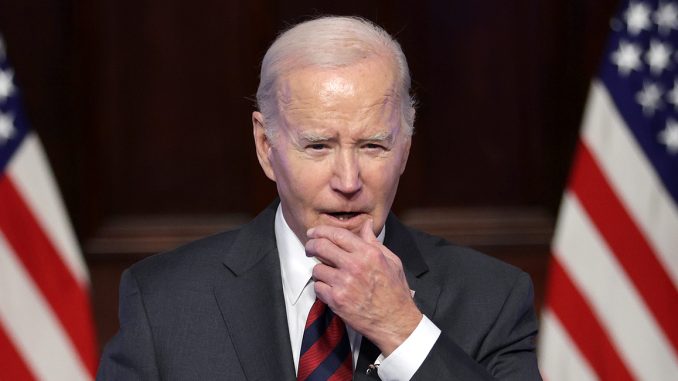
FIRST ON THE DAILY SIGNAL—Getting to the truth of Joe Biden’s use of multiple alias email accounts while he was vice president could take years if Congress waits on the U.S. National Archives and Records Administration to release all of the relevant records it is requesting. However, The Heritage Foundation’s Oversight Project has identified what could be a relatively small cache of documents that could help Congress get to the heart of the issue in just a matter of months.
The alias email issue raises ongoing concerns about the executive branch’s use of aliases, pseudonyms, and “burner accounts” as a means to potentially hide their activities and circumvent oversight and accountability.
The aliases linked to Biden include email addresses from relatively unknown email domains managed by the Defense Information Systems Agency and offshore email providers would make document retention, and oversight, purposefully difficult under the Presidential Records Act and other laws.
Court filings show that the then-vice president was involved in the exchange of more than 82,000 pages of documents using these email accounts. Of these 82,000 pages, less than 1% have been turned over to congressional Republicans in an effort to stonewall congressional oversight.
Considering that such documents must generally be reviewed by lawyers and others for potential redactions before being released, the expectation is that they be released at a rate of 500 pages per month. That means the National Archives could take several years to process and release all 82,000 pages. This prolonged timeline would obviously pose severe challenges for congressional investigations.
However, the National Archives has revealed to the Heritage Oversight Project through a narrowly targeted Freedom of Information Act request that it possesses 731 documents relevant to the creation of these alias email accounts and potentially who authorized their use. (The Daily Signal is The Heritage Foundation’s news and commentary outlet.)
The Oversight Project’s targeted FOIA request and its discovery of this smaller cache of documents could provide congressional investigators with new leads and witnesses in a more expedient manner. In essence, rather than waiting for 82,000 pages of documentation to be released over a period of years, in a matter of months, these 731 core documents could provide names of witnesses whom Congress could then call to testify about the matter.
The FOIA request as filed sought documents pertaining to the setup and creation of pseudonym emails linked to Biden when he was vice president, as well as all “policies, directives, legal opinions, or presidential findings regarding the usage of pseudonyms, cover plans, or alias accounts” by the Executive Office of the President, from 2009 to the present.
The Oversight Project was previously told by the White House that personal accounts should not be used to “conduct official government business absent written approval by White House Counsel.” The policy goes on to state that White House employees are not precluded from using or maintaining pseudonymous accounts to the extent allowed by law; however, their use draws further questions from a records retention standpoint.
Other offices with the White House such as the Office of National Drug Control Policy indicated that the use of personal email accounts is generally prohibited in the course of official business. However, that office’s policy, written under the Trump administration, requires employees to back up official communications within 20 days to an official email address if an “emergent situation” arose that necessitated the usage of personal email accounts for official business.
Since January 2022, numerous investigative journalists have been persistently seeking access to these records—as well as Republican oversight stakeholders, including Sen. Chuck Grassley, R-Iowa, and Sen. Ron Johnson, R-Wis., who discovered the pseudonym accounts as early as July 2021. Despite these efforts, the National Archives has released little information in response to both congressional inquiries and FOIA requests—a move that appears to be an attempt to slow down and impede oversight efforts.
Have an opinion about this article? To sound off, please email letters@DailySignal.com, and we’ll consider publishing your edited remarks in our regular “We Hear You” feature. Remember to include the URL or headline of the article plus your name and town and/or state.

